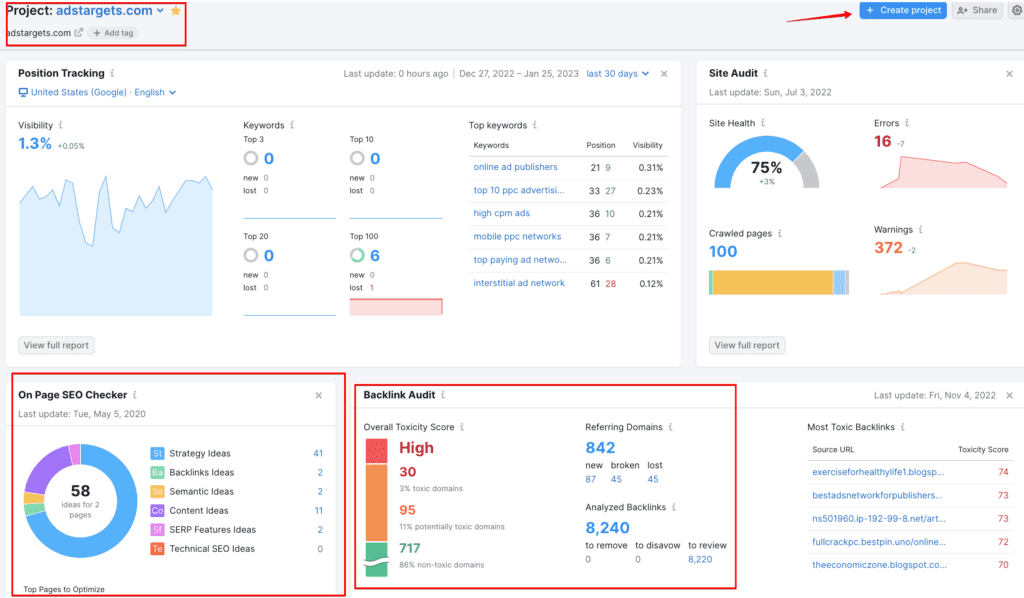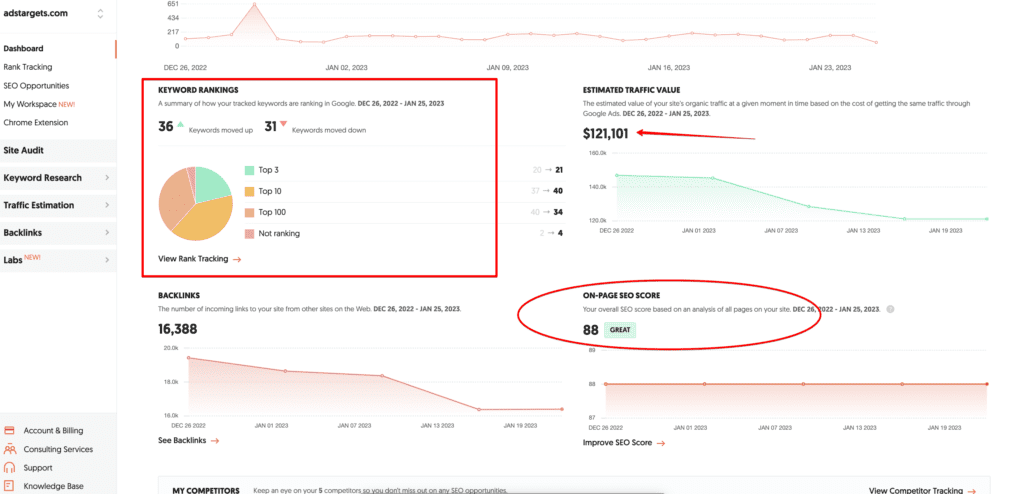Let me attempt a guess. That you clicked to read this article suggests to me that your competitors are doing something right and leaving you behind in your industry.
Hey! That`s just a guess, I might be so wrong, Okay, I am wrong, Let me tell you something else.
Keyword research tools help you find which keywords are best to target and provide valuable insight into the queries that your target audience is searching for in search engines.
The insight that you can get into these actual search queries can help inform your content strategy along with your larger marketing strategy, you get?
Now, there are numberless keyword tools available on the internet to wield and succeed in your digital marketing journey, however, not all are free and not all are best for SEO.
Here in this guide, I will give you my picks for the top best free keyword tools that can help you to identify high-paying keywords and boost your website’s SEO, read on.
And let me not forget to mention to you that these tools I am going to tell you about also provide insights into how much traffic each ad campaign is likely to generate.
Table of Contents
ToggleFree Keyword Tools For Marketers
#1. SEMrush
Semrush is an SEO tool that does your keyword research, tracks the keyword strategy of your competitors, runs an SEO audit of your website, searches for backlinking opportunities, and lots more other great features in this Free keyword tool.
Internet marketers the world over trust Semrush’s powers to conduct great research on keywords. It is also leveraged by several businesses, both big and small.
As one who has benefitted so much from utilizing this tool, I will recommend it any day to anyone looking for results from keyword research tools.


So, if your competition is beating and flooring you badly in the search results, don’t worry, there are a lot of things you can do about it when you wield this research armor, such as:
#1. Conduct research on your competitors.
#2. Analyze their content marketing strategy.
#3. Figure out why they get so much more traffic than you.
#2. Ahrefs
Ahrefs is an all-in-one SEO toolbox for optimizing websites and growing search traffic. To do that, Ahrefs crawls the web, stores tons of data, and makes it accessible through a simple user interface.
Ahrefs Keywords Explorer enables you to get relevant keyword ideas and traffic estimations, aside from this, this free keyword tool can help you achieve the following:
#1. with the help of the Site Explorer tool you may easily analyze your website’s backlinks profile and also the sites of your competitors.
This tool should come in handy if you wish to explore the most profitable keywords for organic and paid searches
#2. The platform Content Explorer tool will enable you to find the most shared content for any topic having the largest amount of shares on social media platforms
#3. Ahref`s Rank Tracker tool allows one to track desktop and mobile rankings for any location and collect daily/weekly/monthly reports.
#4. The Site Audit tool will analyze your site for common SEO issues and monitor your SEO health progressively.
#5. Alerts will keep you notified of new and lost backlinks, web mentions, and keyword rankings.
I didn’t hear you say wow! Aren’t you impressed with the superpowers buried in this free keyword tool? Okay if you aren’t impressed yet, allow me to add something more.
Ahrefs can easily replace many tools and has already become an essential tool for any SEO since it offers you new ideas for link-building and content analysis; social statistics and ratings; export of any data for additional analysis on your own; multiple charts and graphs for visual representation and more.
#3. Google Keyword Planner
Keyword Planner allows you to research high-result keywords for your Search campaigns. You can use this free tool to discover new keywords related to your niche and see estimates of the searches that are made with this tool.
When it comes to Pay per click (PPC) keyword research, Google Keyword Planner is one of the best tools out there. It’s completely free, so you never have to worry about running into boundaries or costly upgrades.
Google Keyword Planner has two key features: one for exploratory keyword research and discovery and another for more comprehensive research on search volume and forecasting.
Below is a list of what you can do with this tool:
#1. Discover fresh keywords: Get suggestions for keywords related to your products, or website.
#2. View monthly searches: See estimates on the number of searches a keyword attracts each month.
#3. Can inform your organic strategy: By showing you where you rank organically may help you save on PPC costs.
#4. Moz Keyword Explorer
The free version of this tool is super-useful by itself, while Pro users get added functionality like advanced keyword suggestions.
The tool suggests keywords to help you find related keywords within your industry that you may not have thought of.
Enter a broad word in your industry, select your location, and hit on the magnifying glass to search. Keyword Suggestions are displayed on the left panel.


By default, these suggestions are sorted by relevancy. By that, we mean keywords that show up in most sources and are lexically the closest to the original search term you entered into the engine. Maximum relevancy is shown by six blue dots.
Along the top of the page, you will be presented with the options to filter these suggestions based on Source, Volume, Group, and the Advanced include or exclude filter, these and more you can do with the Moz keyword explorer.
#5. Bing Webmaster Tools
The Free keyword tool takes a root keyword as input to suggest matching and other related keywords.
The tool has a search box on top where you can type in the root keyword that you want to research.
By default, the tool lists a set of keywords that are generating traffic to websites and also the corresponding search volume trend.
As a user, you can apply filters based on country, devices, and language to get details for specific scenarios.
You can also get results for any timeframe in the last six months using this tool.
By default, again, these filters can generate results for all countries, languages, and devices and a period of the previous 3 months.
The tool recommends keyword ideas under three lists of keywords:
#1. Related keywords: This is a group of different keyword ideas that Bing considers related to the root keyword you typed in. These are arranged by relevance to the originating keyword by default.
#2. Question keywords: This category contains specific questions that were asked by the other users, based on keyword ideas in Related keywords.
This section offers you the specific information that users are looking for around those keyword ideas.
#3. Newly discovered: This is a subgroup of the Related keywords that have only qualified for being useful to the root keyword in the last 30 days.
#6.Keyword Hero
The Keyword Hero helps you find out which keywords visitors used to land on your page in your Google Analytics account.
Understanding the intent of organic traffic is a powerful component for both e-commerce and web publishers of any size.
No other solution on the market matches your users’ search queries and sessions.
Keyword Hero works to solve the challenge of missing keyword data with lots of advanced math and machine learning.
It’s not a perfect system I should make haste to tell you that, but for those struggling to match keywords with conversion and other on-site metrics, the insights can be a valuable step in the right direction.
#7. Answer The Public
It’s hard to not love to Answer The Public. The interface has an almost Cards Against Humanity rebel vibe to it.
Regardless, if you want to generate a massive list of questions from any keyword set, this is your go-to keyword research tool.
With these free keyword tools, you can get instant, raw search information, direct from the minds of your customer.
With this tool you can:
#1. Meet your target customers exactly where they are: Create very Relevant content that strikes a chord and drives more traffic, downloads, views, and shares to your page since you now know exactly what your customers are looking for.
#2. Keep your finger firmly on their pulses: Get updates when users talk about your keyword in new ways. Monitor Trends and compare search behavior progressively.
#3. Uncover hidden treasures and make a fortune out of them: Discover unexpected insights and hidden niches that improve organic search and lend your campaigns a winning edge against your competitor
#4. Streamline your content production: Identify content ideas without manually having to filter through individual keywords. Save days and even weeks of your time by leveraging this interesting and useful tool.
#5. Make solid business decisions, and take fewer risks: Get front-row seats to what users are Googling in real time and use search information to make bold business-building decisions, by leveraging this tool to push your competitor to the back seat.
#6. Stop wasting time on gut feel and guesswork: Fill your content calendar (fast) and say goodbye to the bad old days of writer’s block with endless content ideas based on meaningful keyword searches.
#8. Ubersuggest
Do you need more keyword ideas? From head terms to long-tail phrases you will get hundreds of suggestions from this free keyword tool.
You will also see volume, competition, and even seasonal trends for each chosen keyword.
And to make things a bit easier this platform generates a list of keywords for you based on what is working for your competitors and based on what users are typing into the search engine.
Sometimes I make fun of Neil Patel because he does SEO in his sleepwear.


I’m probably jealous because I don’t even own sleepwear. Regardless, Neil took over Ubersuggest not long back and gave it a major lift.
If you haven’t tried it in a while, it now goes way beyond keyword suggestions that you used to know about and provides a lot of extended SEO functionalities such as basic link metrics and top competitor pages.
Ubersuggest enables you to get insight into the strategies that are working for others in your industry so you can adopt them, improve them, and gain an edge over them.
#9. Keyword Surfer
Keyword Surfer lets you generate keyword ideas and see search volumes right there in Google search results.
Keyword Surfer enables you to see search volume directly in Google search results, incredible, I would like to hear you say.
For every new search in Google, you will unearth valuable insights on search volume, CPC, keyword suggestions, visibility metrics, related terms, and on-page data.
You can also create keyword collections that will enable you to easily bookmark important keywords without having to search them separately every time.
Streamline your entire content creation research process without ever leaving the Google results page.
#10. QuestionDB
QuestionDB is among the modest tools I have tried my hands on. As the words in the name suggest, you type a keyword or root word into the tool, and it generates a list of related questions other people ask online.
What’s unique about this tool is the sourcing. While many tools will show you question-based keywords drawn out from Google or Bing, QuestionDB pulls questions from all across the web, including sites like Quora, Reddit, and Stack Exchange which, of course, are a gold mine of questions on the internet.
For instance, you might search for a term like “keyword research.” This tool will scrape the web to find related questions people are asking related to keyword research, allowing you to see how, why, and where people are talking about the term.
You can brainstorm content terms, see how people are talking about a keyword outside the Google search bar, and gain a perspective on how you should talk about the topic in your content.
Conclusion
The use of keywords has a vital impact on organic page ranking in search engines for your website.
Statistics suggest that 75% of web users never even look past the first page of search results. Well, we all know what that means; you have to be on the first page to be found.
This means that at every point in time, there is heated competition among advertisers as each struggles to take the strategic spot on the search engine result page (SERP) and place their products where they can be seen by the targeted audience.
To help you in this struggle to stay ahead of your game, this guide has suggested 10 of the best free keyword tools on the market for your use. I hope these tools produce results and take you to the page of the search engines.




